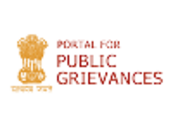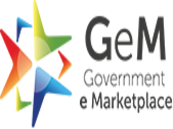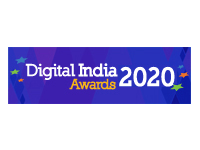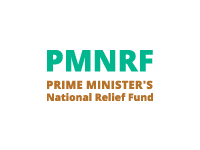Vimal Kumar Varun
Department of Scientific & Industrial Research, New Delhi-110016
Internet: vkv[at]nic[dot]in URL: http://members.tripod.com/~vkv
Free Scholarships Searches
http://wwwfinaid.es.vt.edu/freesearch /search.html
Then Office of Scholarships and Financial Aid offer the avialbility of five different web-based scholarship searches. All of these searches are on-line versions of commercial products and being provided Free of charge by the following companies :
Viginia Tech and fastWEB.com, L.L.C.,
FASTWEB at http://www.fastweb.com
Daigle and Vierra, Inc
SRN-Express at http://rams.com/srn/
The College Board
ExPAN at http://collegeboard.org/fundfinder/bin/fundfind01.pl
CollegeNET
MACH25 at http://collegenet.com/mach25/
Sallie Mae
Online Scholarship Service at http://scholarships.salliemae.com/
Fastweb
http://www.fastweb.com
It is a FREE financial aid search through world wide web consist of a database of over 375,000 scholarships. The database searches through an individuals personalized profile, created in six simple steps, consists of skill, abilities and interest.
Check your fastWEB mailbox! regularly for updates, new awards, updates on current scholarships.
Contact: fastWEB.com, L.L.C., 2550 Commonwealth Avenue, North Chicago, IL 60064
mailto: webmaster[at]fastweb.com for questions about fastWEB.
World Intellectual Property Organization
http://www.wipo.org/eng/newindex/index.htm
The World Intellectual Property Organization - referred to in abbreviated form as WIPO in English, and OMPI in French and Spanish - was established by a convention signed at Stockholm on July 14, 1967, and entitled "Convention Establishing the World Intellectual Property Organization." The WIPO Convention entered into force in 1970. WIPO became a specialized agency in the United Nations system of organizations in 1974.
WIPO is an intergovernmental organization with headquarters in Geneva, Switzerland. It is one of the 16 specialized agencies of the United Nations system of organizations. WIPO is responsible for the promotion of the protection of intellectual property throughout the world through cooperation among States, and for the administration of various multilateral treaties dealing with the legal and administrative aspects of intellectual property.
|
WIPO FACT FILE |
|
| Location | Geneva, Switzerland |
| Established | 14 July 1967 |
| Created by | Uruguay Round negotiations (1986-94) |
| Membership | 171 countries (as of July 1998) |
| Budget | 149,795,500 Swiss Francs (1997) |
| Head | Kamil Idris (Director General) |
Intellectual property comprises two main branches: industrial property, chiefly in inventions, trademarks, industrial designs, and appellations of origin; and copyright, chiefly in literary, musical, artistic, photographic and audiovisual works.A substantial part of the activities and the resources of WIPO is devoted to development cooperation with developing countries.
The number of States members of WIPO was 171 on July 8, 1998 (updated list available is available at http://www.wipo.org/eng/ratific/c-wipo.htm). In addition, six States were party to treaties administered by WIPO but had not yet become members of WIPO.
The texts of Treaties administered by WIPO is available at http://www.wipo.org/eng/iplex/index.htm. It also includes the Agreement between the World Intellectual Property Organization and the World Trade Organization, concluded in Geneva on December 22, 1995 at http://wipo.org/eng/iplex/wo_wto0_.htm.
The WIPO Permanent Committee on Industrial Property Information (PCIPI) website is available at http://www.wipo.org/eng/general/pcipi/pcipi.htm . It includes WIPO Standards, WIPO Industrial Property Statistics, International Classifications, etc. The WIPO Industrial Property Statistics, an annual publication, includes :
Publication A — An abridged version of the final statistics, concerning all types of industrial property rights.
Publication B (Part I) — The final statistics concerning patents and utility models.
Publication B (Part II) —The final statistics concerning trademarks and service marks, industrial designs, plant varieties and microorganisms.
The Catalogue of Publications (July 1998) is available at http://www.wipo.org/eng/catalog/index.htm.
Contact: World Intellectual Property Organization, PO Box 18, CH-1211 Geneva 20
mail to: publications.mail[at]wipo.int for ordering WIPO publications, pct.infoline[at]wipo.int for PCT matters, publicinf.mail[at]wipo.int for public information matters, and wipo.mail[at]wipo.int for matters of general interest.
World Trade Organization
http://www.wto.org
The WTO is the only international body dealing with the rules of trade between nations. At its heart are the WTO agreements, the legal ground-rules for international commerce and for trade policy. The agreements have three main objectives: to help trade flow as freely as possible, to achieve further liberalization gradually through negotiation, and to set up an impartial means of settling disputes.The WTO began life on 1 January 1995, but its trading system is half a century older. Since 1948, the General Agreement on Tariffs and Trade (GATT) had provided the rules for the system.
The WTO is GATT plus a lot more. GATT (the institution) was small and provisional, and not even recognized in law as international organization. It has now been replaced by the World Trade Organization. GATT (the agreement) has been amended and incorporated into the new WTO Agreements. GATT deals only with trade in goods. The WTO Agreements now cover services and intellectual property as well.
|
WTO FACT FILE |
|
| Location | Geneva, Switzerland |
| Established | 1 January 1995 |
| Created by | Uruguay Round negotiations (1986-94) |
| Membership | 132 countries (as of October 1997) |
| Budget | $ 93 million (1996) |
| Secretariat staff | 500 |
| Head | Renato Ruggiero (Director General) |
The details of member states is given at http://www.unctad.org/en/special/tb45in1.htm.
UNCTAD work closely with UN Department for Economic and Social Affairs (DESA), UN Development Program (UNDP), International Trade Centre, World Trade Organization (WTO), UNIDO, and WIPO, as well as other multilateral organizations such as the World Bank, the IMF, and the regional economic commissions.
It also collaborates with a wide range of economic cooperation organizations, including the OECD and regional integration groupings of developing 132 member group of 77 developing countries, and many other national and international organizations.
UNCTAD undertakes the following tasks:
- Globalisation and development startegies
- International trade in goods and services,and commodities
- Investment, technology and enterprise development
- Services infrastructure for development and trade efficiency
- Least developed, land-locked and island developing countries
- Cross sectoral issues related with sustainable development, poverty alliviation, the empowerment of women, and economic cooperation among developing countries.
UNCTAD Secretariat structure consists of:
- Division on Globalization and Development Strategies (GDS)
- Division on International Trade in Goods and Services, and Commodities (DITC)
- Division on Investment, Technology and Enterprise Development (DITE)
- Division for Services Infrastructure for Development and Trade Efficiency (SITE)
- Office of the special coordinator for Least Developed, Land-locked and Island Developing Countries (OSC-LDC)
Executive and administrative support is provided through the offices of Executive Direction and Management (EDM); the Administrative Service; and the inter-governmental Support Service.
EDM provides management policy and legal advice; coordinates technical assistance; handles external relations; promotes cooperation between UNCTAD and other organizations; and ensures the planning, coordination and assessment of work programmes.
UNCTAD Conference meets every four year at Ministerial level to formulate policy guidelines and set work priorities. UNCTAD X is scheduled to be held early in the year 2000, in Thailand.
UNCTAD IX, held in Midrand, South Africa in 1996 adopted a revised mandate for the organisation as well as the most far-reaching reforms in its history. The final document entitled 'A Partnership for Growth and Development' resulted in:
- a refined, and more focused, work programme
- a streamlined intergovernmental machinery
- a complete restructuring of the secretariat
- a slimmed-down administrative and management structure
- closer involvement of civil society in the organization's work.
- improved coordination with other organizations.
The Trade and Development Board meets in Geneva during the interval between the conference and examines interdependence and global economic trends from a trade and development perspective. The regular sessions take place every autumn, for upto 10 working days. One day is devoted to a public discussion of a topical policy issues, with the participation of senior officials, as well as leading businessmen, academics and other public figures. The Board meets up to three times a year for one day in executive session to deal with urgent policy issues as well as management and institutional matters.
The Commissions of the Board usually meets once a year for 5 days. In addition, the Commission may convene up to ten expert meetings a year. UNCTAD actively associates civil society and the private sector with its intergovernmental machinery, where appropriate. Experts from academia and business are invited to participate as panelists in sessions of the Commissions and take part fully in expert meetings.
UNCTAD's technical cooperation activities are as follows:
- Enhance the human and institutional capacities of developing countries and countries in transition to strengthen their policy and institutional environment for development.
- Improve the ability of countries to participate fully in the world economy, particularly in international trade, finance and investment.
- Help developing countries obtain a better understanding of, and help provide solutions to, their international economic problems.
- Strengthen the negotiating capacities of developing countries as regards international trade, finance and investment.
UNCTAD's technical co-operation strategy is defined by its:
- demand-driven nature
- focus on human and institutional capacity building.
- priority to least developed countries, through their increased share of technical co-operation activities.
- intergration with UNCTAD's analytical work and its support for intergovernmental deliberations.
- flexibility in the forms of technical co-operation and in modes of delivery
- co-operation and partnership with other ogranizations.
Over 300 projects are currently being implmented in more than 100 countries, for an annual delivery of approx US$ 24 million(1996-97 bienium). the details are given under Technical Cooperation at http://www.unctad.org/en/aboutorg/aboutrog.htm
UNCTADS's annual publications includes Trade and Development Report, World Investment Report, Least Developed Countries Report, Handbook of International Trade and Development Statistics, and Review of Maritime Transport. The details are given under Annual Publications at http://www.unctad.org/en /aboutorg/aboutrog.htm. The annual guide to UNCTAD publication, available at http://www.unctad.org/en/pressref/pu96guen.htm , lists other periodic adn occasional studies, analyses and working papers.
UNCTAD press releases and reference service is available at http://www.unctad.org/en/press/pressref.htm .
Contact: External Relations Service, UNCTAD, Palais des Nations, 1211 Geneva, Switzerland
mailto: ers[at]unctad.org for more information.
International Trade Centre
http://www.intracen.org
The The International Trade Centre UNCTAD/WTO (ITC) is the focal point in the United Nations system for technical cooperation with developing countries in trade promotion. ITC was created by the General Agreement on Tariffs and Trade (GATT) in 1964 and since 1968 has been operated jointly by GATT (now by the World Trade Organization, or WTO) and the UN, the latter acting through the United Nations Conference on Trade and Development (UNCTAD). As an executing agency of the United Nations Development Programme (UNDP), ITC is directly responsible for implementing UNDP-financed projects in developing countries and economies in transition related to trade promotion.
ITC's legal status is that of a "joint subsidiary organ" of WTO and the United Nations, the latter acting through UNCTAD. The broad policy guidelines for ITC's technical cooperation work are determined by the governing organs of ITC's parent bodies. Recommendations on ITC's future work programme are made to these two organs by ITC's annual intergovernmental meeting, the Joint Advisory Group on the International Trade Centre UNCTAD/WTO (JAG). The JAG also reviews ITC's proposals for its medium-term plan, which provides a general framework for ITC's activities over a six-year period and forms part ofthe overall UN Medium-Term Plan. Representatives of member states of ITC's parent organizations attend the JAG meeting. In addition to the review by these intergovernmental meetings, ITC's policies and programmes are periodically examined in meetings attended by representatives of its parent organizations and ITC's Executive Director.
ITC works with developing countries and economies in transition to set up effective trade promotion programmes for expanding their exports and improving their import operations.
Its field of specialization covers six areas:
- Product and market development
- Development of trade support services
- Trade information
- Human resource development
- International purchasing and supply management
- Needs assessment and programme design for trade promotion
In all of these services ITC gives particular attention to activities with the least developed countries (LDCs).
ITC's technical cooperation projects are carried out in all developing areas, at the national, subregional, regional and interregional levels. They are undertaken at the request of governments of the countries concerned. Projects are administered from ITC headquarters in Geneva and are implemented by ITC specialists who work in close liaison with local officials. A project may last from a few weeks to several years, depending on the number and types of activities involved.
All of ITC's technical cooperation projects are systematically monitored and evaluated to ensure that the objectives initially agreed to between the government(s) and ITC are being achieved.
ITC also provides services from its headquarters in Geneva that are available to all such countries. These include publications on trade promotion, export development, international marketing, international purchasing, supply management, and foreign trade training, as well as trade information and trade statistics services of various types.
ITC's export market development activities are coordinated, whenever relevant, with the work of the Food and Agriculture Organization of the UN (FAO) and the UNIDO. Close contacts are maintained with UNDP, which provides financing for a portion of ITC's projects with developing countries and economies in transition, and whose Resident Representatives and Resident Coordinators serve as ITC's official representatives in their countries of assignment.
ITC's regular budget is funded in equal parts by the United Nations and WTO. It finances general research and development on trade promotion and export development, part of which results in published studies, market information and statistical services. This budget also covers overall administration of the organization.
Mr. J. Denis B�lisle, ITC's Executive Director, is responsible for the management of ITC. Staff at ITC headquarters in Geneva, Switzerland, number approximately 210. Several hundred consultants are assigned to ITC projects in developing countries and economies in transition each year.
ITC does not have any regional or national field offices. However, each government with which ITC works, in both recipient and developed countries, appoints an official ITC liaison officer within its administration.
ITC Infobases available at http://www.intracen.org/infobase/itcinfb.htm includes:
- Bibliographies: Selected articles on trade information and trade promotion; Periodicals' information by descriptor and title
- Trade contacts: Trade Promotion Organizations (National, Regional and International) by region & country; Associations of specialised importers by product, region and country
- Trade statistics: Product classification; International Trade Statistics (Imports & Exports) by section & product group and country & product group (1992-1996)
- Services: Export Quality Management; Enterprise Competitiveness: Small and Medium Enterprises Development Agencies (SMEDAs); Trade Financing Services; Export packaging; Legal Aspects of Foreign Trade
The Export Quality Management Organizations (National, Regional and International) by region & country is available at gopher://gopher.unicc.org:70/11/itc/dir4/dir42/dir422 . The index of Associations of specialised importers by product is available at gopher://gopher.unicc.org:70/00/itc/dir2/dir23/dir231/file2312.txt . A worldwide list of packaging institutes and associations is available at http://www.intracen.org/services/ep/packinst.htm . The names, addresses and contacts of main credit insurance agencies worldwide is available at http://www.intracen.org/services/tfs/creditag.htm
Contact: International Trade Centre UNCTAD/WTO (ITC) Palais des Nations, 1211 Geneva 10, Switzerland
mail to: ITCREG[at]INTRACEN.ORG for more information.





















